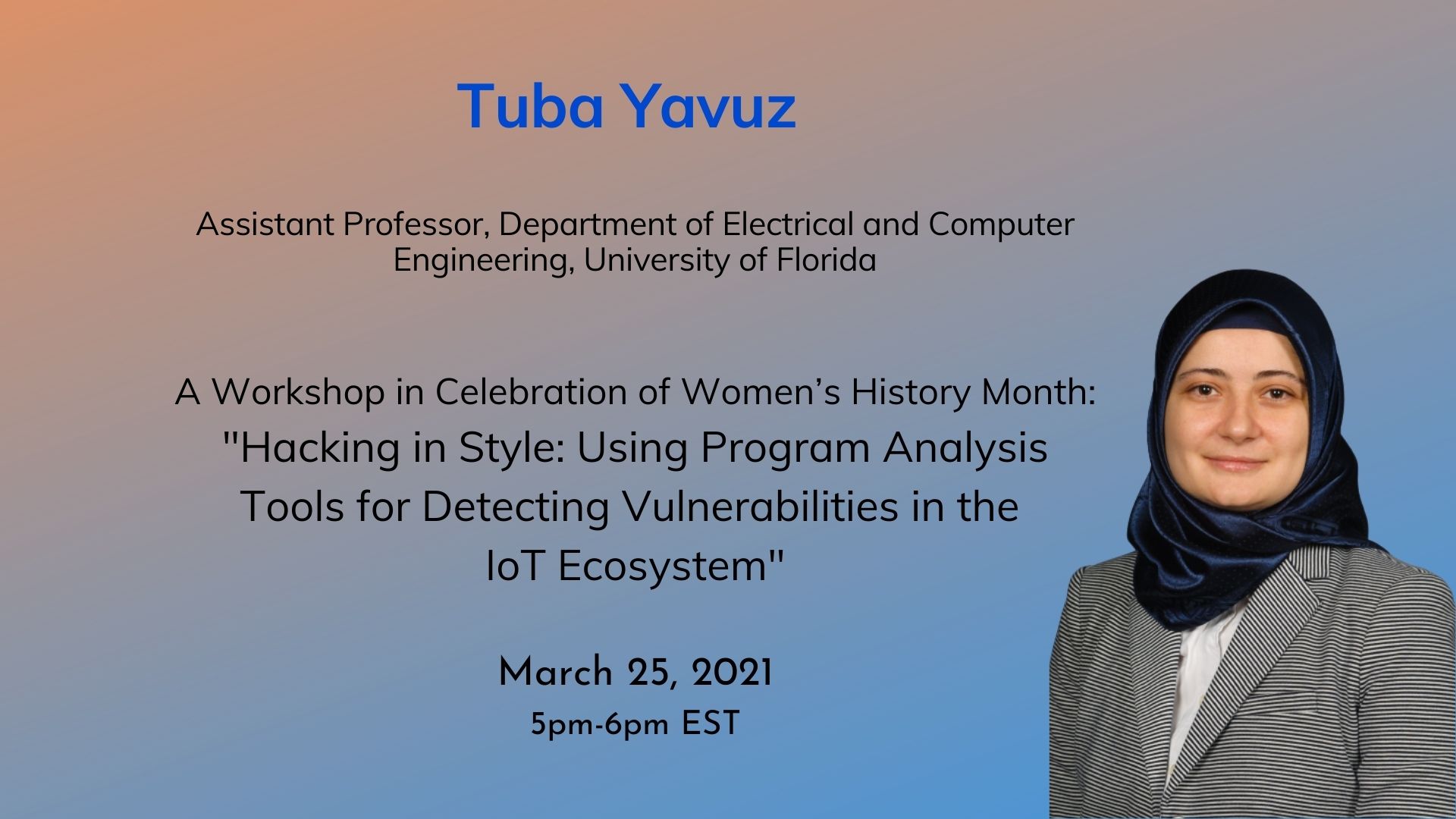
Abstract
As the Internet of Things (IoT) brings an unprecedented connectedness and capabilities to our daily lives, the security of IoT devices and the privacy of users are threatened by the wide attack surface enabled by this connectedness. While IoT consumers enjoy the convenience of their devices, they also wonder whether their devices are currently being hacked or are participating in a botnet as in the case of the Mirai attack, and whether their privacy is at stake. So, in the era of IoT, employing secure deployment and development practices and developing effective vulnerability detection approaches have become more crucial than ever. Since the IoT ecosystem involves the cloud, mobile platforms, edge devices/routers, and IoT devices, any type of software running on these components needs to be secured to achieve IoT security.
Biography
Dr. Tuba Yavuz is an Assistant Professor within the Department of Electrical and Computer Engineering (ECE) at UF. She received her Ph.D. in Computer Science from the University of California, Santa Barbara in 2004. She is affiliated with the Warren B. Nelms Institute for the Connected World, the Florida Institute for CyberSecurity Research (FICS), and the CISE Department at UF. Her research experience spans formal methods, software engineering, and systems security. She teaches courses in the areas advanced systems programming and automated hardware/software verification. She has detected several vulnerabilities in the Linux Kernel and various open-source cryptographic libraries including ARM’s mbedTLS using program analysis tools that have been developed within her research group. She received an NSF CAREER Award in 2020.
Event Details
Topic: Hacking in Style: Using Program Analysis Tools for Detecting Vulnerabilities in the IoT Ecosystem
Day/Date: Thursday, March 25, 2021
Time: 5pm-6pm EST
Registration link: https://forms.gle/f9t2G3xt83zWJygCA